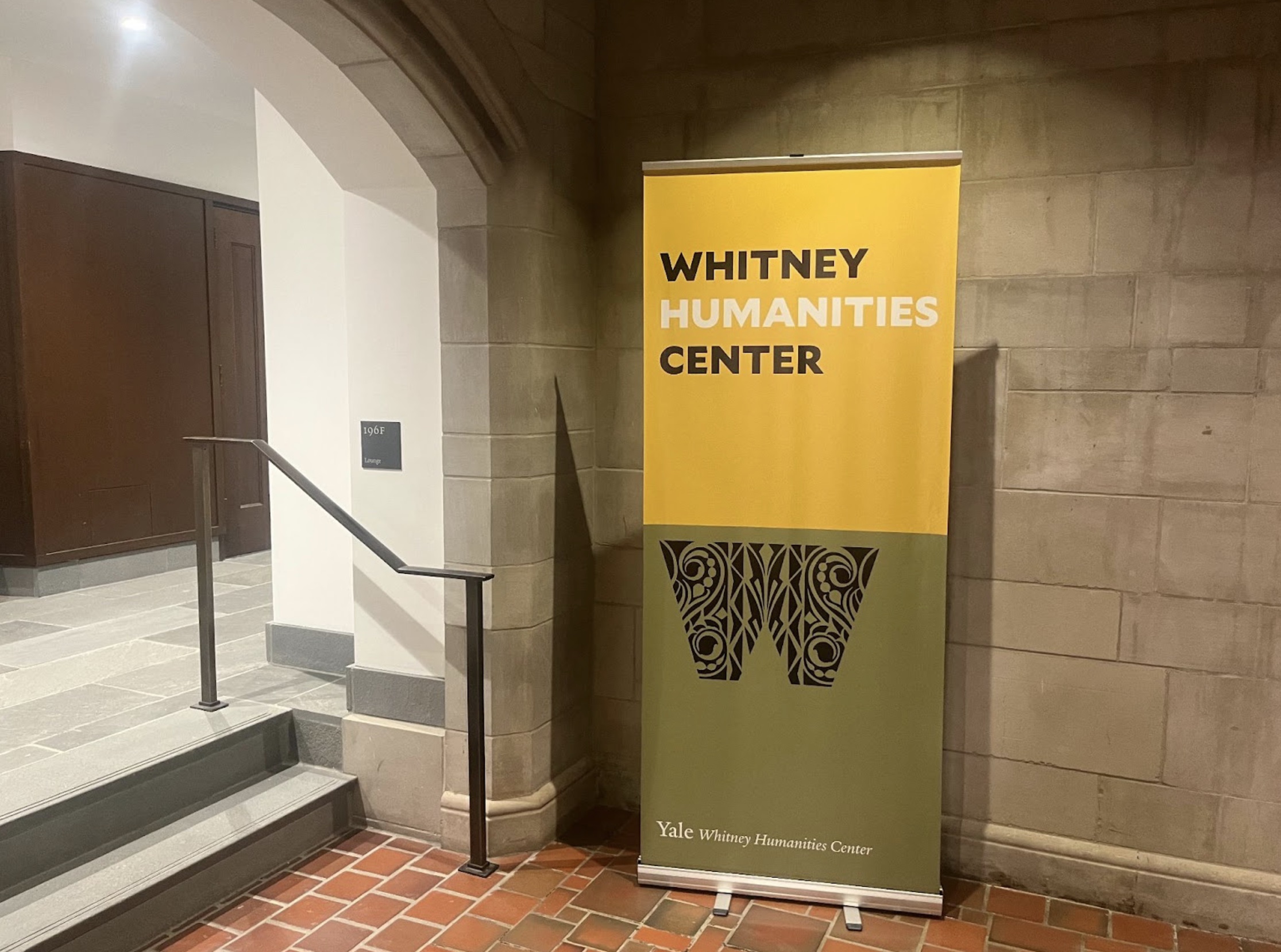Whitney Humanities Center’s “Palestine through Film” offers multi-faceted glimpse into Palestinian life
Until March 6, the Whitney Humanities Center will screen films that showcase the complexities of Palestinian history and culture.

Angel Hu, Contributing Photographer
Until March 6, the Whitney Humanities Center will screen films that showcase the complexities of Palestinian history and culture.
In May 2024, the WHC called for graduate student film programmers to submit proposals for a semester-long film series. The WHC’s spring 2025 film series, “Palestine through Film” was chosen out of over 20 submissions, alongside the fall series “World Documentaries Today.”
Curated by two Yale graduate students, “Palestine through Film” features historically fictitious films, documentaries and animations that depict everyday life, perspectives and sociopolitical events from 1948 to the present. The screenings are held in the Alice Cinema, located on the lower level of the Humanities Quadrangle.
“The series opens a window onto the mosaic of life in Palestine, inviting audiences to recognize not only the tragic but also the joyous realities of Palestinian experiences,” wrote Megan O’Donnell, the associate communications officer for the WHC.
Over this past year, many students encountered aspects of Palestinian history and culture for the first time, wrote O’Donnell.
According to the student film curators, their guiding principles in selecting the films was to ensure that they “chronologically address major political moments in the occupation of Palestine and also capture Palestinian life within these moments.”
Diane Berrett Brown, deputy director of the WHC, reflected on her own experiences spending six months in the West Bank in the 1980s.
She recalled “the stark beauty of the landscape, women talking while making date-filled cookies, groups of college students singing and dancing, fresh-baked bread being sold in the market, people traveling on green and white buses.”
These moments speak to the range of everyday life depicted in the films.
For instance, “The Wanted 18” — which will be screened Feb. 27 — is a story of Palestinian dairy farming in the 1980s narrated by animated cows. “Mayor” — which will be screened Mar. 6 — offers a glimpse into Palestinian society through its portrayal of Musa Hadid, the Christian mayor of Ramallah, in the form of a witty documentary.
These narratives represent Palestine as “more than a site of conflict” and remind audiences that it’s a place “with prolific artistic and cultural production,” wrote O’Donnell.
“Fertile Memory,” another featured work, was the first Palestinian film to be screened at the Cannes Film Festival, as well as the first full-length feature film shot by a Palestinian director in the occupied West Bank.
For O’Donnell, this “groundbreaking” work captures “the essence of the series” because it grapples with numerous core questions the series seeks to answer.
“What is it like to live in a highly contested and deeply cherished land? How do stateless families continue to live and love, build and rebuild traditions, connect to the land, and tell their stories in the aftermath of displacement?” O’Donnell asked.
The Humanities Quadrangle is located at 320 York St.







